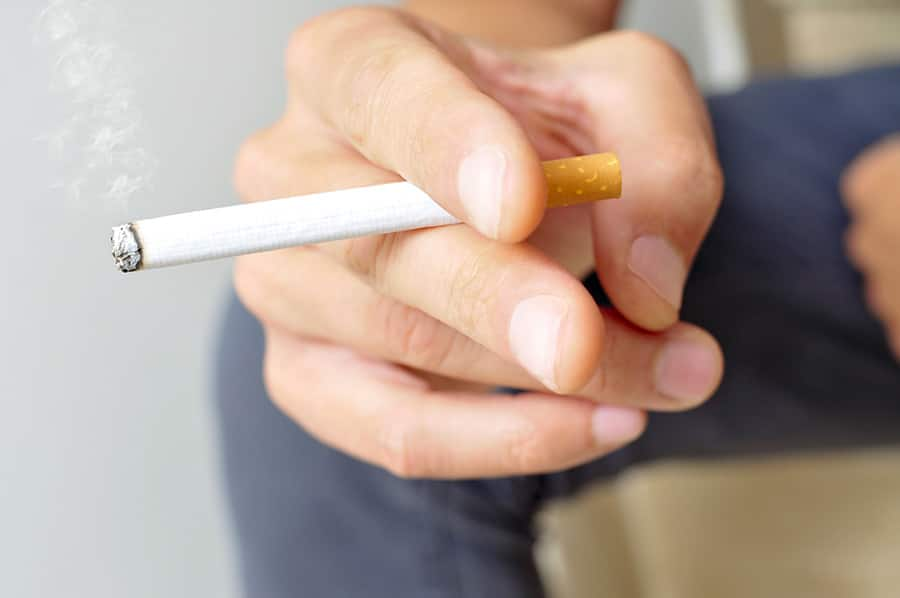1. Dry Socket (Alveolar Osteitis)
After the wisdom teeth removal, blood clots form over the extraction sites to help your mouth heal. Alveolar osteitis, or dry socket, occurs if this blood clot is dislodged, leaving the nerve under your gum exposed to air or food debris. Researchers surveyed over 1,200 patients who had teeth extracted and found that only 41 of participants experienced dry socket. Patients who smoked were more likely to get dry socket than those who didn't. According to the National Health Service (NHS), a dry socket can happen three to five days following wisdom teeth removal. Signs include throbbing or sharp pain at the extraction site. It's essential to contact your dentist or oral surgeon if you start to feel this sharp or throbbing pain so they can clean the extraction site and cover the exposed extraction site.
2. Pain and Swelling
Pain and swelling are pretty typical after tooth extractions, especially within the first one to three days following your wisdom teeth removal. In a study in the American Journal of Oral and Maxillofacial Surgery, researchers surveyed 101 patients who had their wisdom teeth removed. All of them reported feeling pain and swelling. Your surgeon or dentist may recommend over-the-counter pain medications or prescription pain medicine. If you're feeling severe pain or feeling moderate pain after a few days, contact your dentist's office. They may ask you to come in for an examination.
3. Limited Mouth Opening
After a lengthy procedure like tooth extraction, you may experience temporary trismus, or restriction or discomfort opening your mouth. If jaw stiffness or trismus is prolonged, your dentist can prescribe a treatment such as heat therapy, pain medications, muscle relaxants, or jaw opening devices.
4. Excessive Bleeding
Bleeding within the first 8—12 hours after extraction is normal because it takes time for a blood clot to form over the extraction site. Your dentist or oral surgeon will give you instructions to help minimize bleeding, including avoiding smoking and rinsing your mouth with saltwater. They can also recommend soft foods to eat.
5. Lip Numbness
Lip numbness is rare, but it's possible. Your wisdom teeth are close to the inferior alveolar nerve in the jaw. According to the NHS, if the nerve becomes damaged during the procedure, it can lead to numbness in the lips or jaw. This numbness is usually temporary, but it can be permanent if nerve damage is severe. Most wisdom teeth extractions do not have this complication, however.
Your dentist or surgeon will discuss with you possible wisdom teeth extraction complications and their recommendations for reducing risk, including taking care of your extraction site after the procedure to ensure proper healing. Follow their aftercare instructions and contact their office if you are concerned about a side effect or complication of your wisdom teeth removal.
Oral Care Center articles are reviewed by an oral health medical professional. This information is for educational purposes only. This content is not intended to be a substitute for professional medical advice, diagnosis or treatment. Always seek the advice of your dentist, physician or other qualified healthcare provider.
ORAL HEALTH QUIZ
What's behind your smile?
Take our Oral Health assessment to get the most from your oral care routine
ORAL HEALTH QUIZ
What's behind your smile?
Take our Oral Health assessment to get the most from your oral care routine














